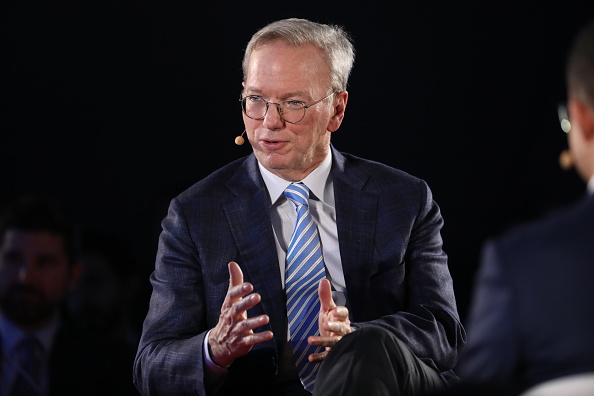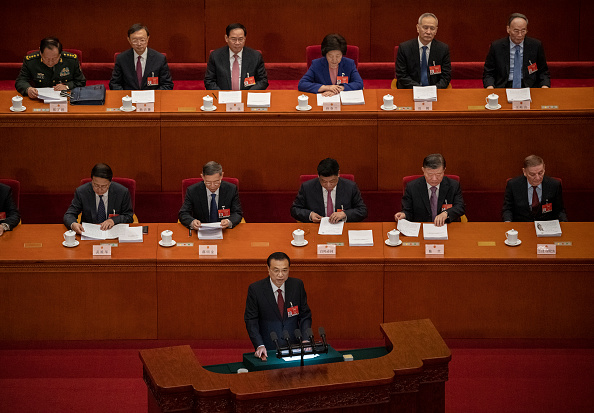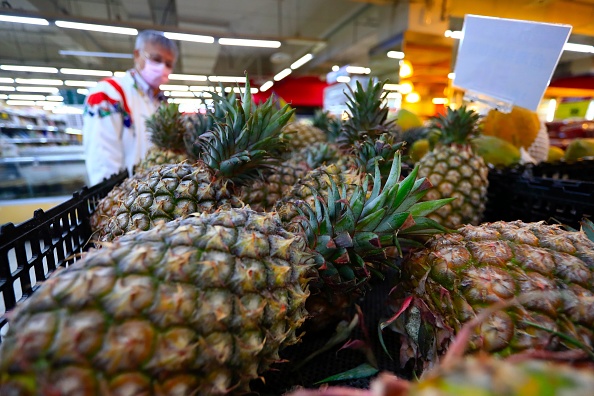
 A Tale of Two AI Superpowers
A Tale of Two AI SuperpowersThe U.S. may be at a competitive disadvantage when it comes to artificial intelligence (AI), according to a new report published by the National Security Commission on AI, which has concluded that China could soon replace the U.S. as the world's "AI superpower" and that there are serious military implications to consider. The 15-member commission, led by former Google CEO Eric Schmidt and composed of American business and tech executives, put together a 756-page report outlining a "strategy to defend against AI threats, responsibly employ AI for national security, and win the broader technology competition for the sake of our prosperity, security, and welfare."
The report calls on the U.S. to modernize export controls and strengthen investment screening for competitor nations, and to invest $40 billion to further develop federal AI research. While the report recommends assertive strategies, it also emphasizes that "the United States can compete against China without ending collaborative AI research and severing all technology commerce."
China has set its sights on becoming a global leader in AI by 2030, intending to transform itself from a nation of factory workers to a technology pioneer by pouring political and financial capital into "major breakthroughs," such as self-driving cars and digital currency. Read about the digitization of China's yuan in China's Rationale and Strategy for the Digital Yuan, written by Christopher McNally, Professor of Political Economy at Chaminade University, for China-US Focus.
 Target Setting
Target SettingChina's annual Two Sessions political meeting is underway, where the country's yearly economic and developmental goals will be defined. In the first meeting this Friday, Premier Li Keqiang set China's much-anticipated growth target to at least 6% for 2021, signaling a strong rebound after the country experienced sharp economic declines at the start of the Covid-19 pandemic. Also unveiled was China's latest manufacturing plan, targeting rare earths, aircraft engines, new energy vehicles, modernized medical technology, among other high-tech areas of interest.
As China prepares for the remainder of the Two Sessions meetings, Chinese health officials also announced a plan to vaccinate 40% of the population for the coronavirus by June, a goal that sets the rate of vaccination at roughly 10 million people per day. The overall vaccine rollout in China has been slow compared to other countries, but health officials noted there should be enough vaccines for the entire Chinese population, and pledged to send half a billion doses abroad.
 Pineapple Diplomacy
Pineapple DiplomacyPineapples are the latest commodity to come under fire in China's trade relationships. China announced it would suspend imports of Taiwanese pineapples starting in March, citing disease control. The move drew criticism from Taipei, as well as various groups in the United States. Wang Mei-Hua, Taiwan's minister of economic affairs, called the ban a violation of international trade rules, while the de facto U.S. and Canadian consulates in Taipei posted photos of diplomats posing with the fruit, in apparent support of the island.
China, which makes up the majority of Taiwan's pineapple exports, rejected claims of wrongdoing, calling the move a matter of national and biosecurity. Authorities in Taipei "deliberately misrepresented and maliciously interpreted technical issues, taking the opportunity to attack and discredit the mainland," according to China's Taiwan Affairs Office.
The pineapple controversy comes after the House of Representatives introduced a bill last week calling on the United States to restart diplomatic relations with Taiwan. The bill specifically calls on the U.S. to negotiate a free trade agreement with Taiwan and support the island's membership in international organizations.
Prepared by China-US Focus editorial teams in Hong Kong and New York, this weekly newsletter offers you snap shots of latest trends and developments emerging from China every week, while adding a dose of historical perspective.
- 2021-02-26 Changing of the Guard
- 2021-02-20 Collective Approaches
- 2021-02-13 Hopes for a Bullish Year
- 2021-02-05 “The Most Serious Competitor”
- 2021-01-29 Looking Towards Multilateralism
- 2021-01-22 Biden’s China Path
- 2021-01-16 Becoming a "Technological Superpower"
- 2021-01-08 Capital Chaos
- 2020-12-18 All Eyes on 2021
- 2020-12-12 Midwest to Middle Kingdom?
- 2020-12-04 Shifting Winds
- 2020-11-21 Multilateralism on the Move
- 2020-11-14 Staying Tough
- 2020-11-07 Battleground Ballots
- 2020-10-30 Knock Knock
- 2020-10-24 Looking Back and Moving Forward
- 2020-10-16 COVID Cluster
- 2020-10-10 Election Looming